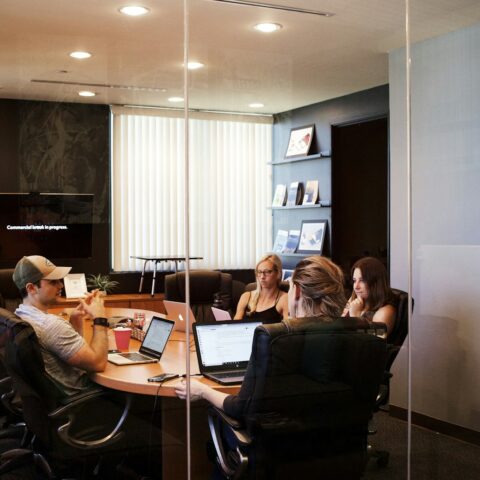Seafarer Contracts and Crew Welfare Under UAE Law and the MLC Convention

The UAE’s Federal Law No. 43 of 2023 also known as the Maritime Code (or “the New Maritime Law”) marks a significant change in maritime labour rights, integrating core principles of the Maritime Labour Convention (MLC), 2006 while establishing stringent local enforcement mechanisms. This legislation addresses longstanding vulnerabilities in seafarer welfare, positioning the UAE as a forward-thinking maritime hub. For ship owners, operators, and legal stakeholders, understanding these frameworks is critical for compliance and ethical operations.
Incorporation of MLC in the Federal Law No. 43 of 2023
The Maritime Code, which came into force in March 2024, marks a comprehensive reform of maritime legislation. It incorporates modern principles aligned with international conventions, particularly the MLC, which the UAE has ratified.
The MLC is often referred to as the “fourth pillar” of international maritime regulation, alongside SOLAS, MARPOL, and STCW. It consolidates over 65 international labour standards into one treaty, setting out minimum requirements for seafarers’ working and living conditions.
The new UAE law integrates many of these MLC provisions and establishes mechanisms for enforcement, including inspection, complaint handling, and administrative penalties.
Key highlights of the law implementing MLC include:
- Alignment with international standards, including the MLC, 2006
- Clear guidelines on Seafarer Employment Agreements (SEA)
- Enhanced regulatory oversight for crew welfare, safety, and dispute resolution
- Introduction of sanctions and penalties for non-compliance
For companies operating UAE-flagged vessels or engaging seafarers in the UAE, adherence to this law is essential.
Seafarer Employment Agreements (SEAs): What Is Required?
Under both UAE law and the MLC, all seafarers employed on UAE-flagged vessels must have a written, legally binding employment agreement. These contracts must be:
- Clearly written and understandable, ideally in a language the seafarer understands.
- Signed voluntarily by both the employer and seafarer.
- Issued prior to the commencement of duties.
A valid SEAs Agreement must include:
- Full identity of the employer and the seafarer;
- Job title, rank, and duties;
- Duration of the contract ;
- Wages and payment intervals, including overtime and bonuses;
- Working hours, rest hours, and holiday entitlements;
- Details of repatriation, including costs covered by the employer;
- Health and social security coverage; and
- Disciplinary procedures and termination clauses.
Ship owners are also required to file copies with UAE authorities and ensure that SEAs are accessible on board for inspection.
Crew Welfare: Living, Working, and Medical Conditions
A critical focus of both the New Maritime Law and the MLC is seafarer welfare, encompassing health, safety, and dignified living standards on board.
a) Living Conditions
The law mandates:
- Adequate accommodation space, including proper ventilation, air-conditioning, lighting, and personal storage
- Access to recreational facilities
- Hygienic food and water supplied at no cost to the crew
b) Medical Protection
Ship owners must:
- Provide access to qualified medical personnel and first aid
- Arrange shore-based treatment at no cost if the condition is work-related
- Pay wages during treatment and recovery periods for occupational injuries or illness
c) Mental Health & Social Rights
The MLC and New Maritime law increasingly recognize mental well-being as part of crew welfare. Employers are encouraged to adopt:
- Anti-bullying and harassment policies
- Support mechanisms for mental health
- Communication access to families
Working Hours and Rest Periods
The New Maritime Law includes detailed provisions to prevent fatigue and overwork, which are major contributors to maritime accidents.
The legal requirements include:
- A maximum of 14 hours of work in any 24-hour period
- A minimum of 10 hours of rest within that period
- No more than 72 hours of work in any 7-day period
- Rest hours must be uninterrupted, and records must be maintained
These provisions apply to all crew members and are subject to port state control inspections. Failure to comply can lead to administrative penalties or detention of vessels.
Dispute Resolution, Claims, and Legal Remedies
Disputes relating to unpaid wages, unfair dismissal, repatriation, or contract breaches are addressed under both the UAE maritime legal system and mechanisms mandated by the MLC.
The key pathways to dispute resolution include:
- Filing a complaint with the UAE Ministry of Energy and Infrastructure (MOEI)
- Mediation or arbitration (as agreed under SEA)
- Civil litigation through the UAE maritime courts
- Vessel arrest to secure unpaid wages or damages
The law also empowers authorities to take swift enforcement action, including revoking licenses, blacklisting vessels, or imposing fines and penalties on non-compliant operators.
Repatriation and End-of-Service Obligations
Ship owners must repatriate seafarers:
- Upon completion of contract
- If the seafarer is medically unfit
- In cases of abandonment, shipwreck, or termination without cause
Costs associated with repatriation—including travel, accommodation, and food—must be fully borne by the employer. Failure to do so may attract criminal liability under UAE law and flag-state sanctions.
Additionally, seafarers are entitled to:
- End-of-service gratuity in line with UAE labour standards
- Issuance of service certificates and employment records
Certification, Compliance, and MLC Enforcement
Vessels of 500 gross tons or more, operating internationally, are required to carry:
- A valid MLC Certificate issued by the UAE maritime authority
- A Declaration of Maritime Labour Compliance outlining procedures for ongoing compliance
Port State Control (PSC) in UAE ports has the authority to:
- Inspect vessels without prior notice
- Detain ships for MLC violations
- Impose corrective measures or bar entry
Conclusion
With the introduction of the UAE Maritime Code and the adoption of the Maritime Labour Convention (MLC) standards, the UAE has taken a strong step toward ensuring that seafarers are treated fairly, safely, and with dignity. It’s a move that reflects the growing global focus on protecting the people who keep the maritime industry moving.
For ship owners, operators, and crewing agencies, this is the right time to take a closer look at how things are done — from the contracts offered, to how crew welfare is supported on board. Updating these practices not only ensures compliance with the New Maritime Law but also helps build trust, improve retention, and create a safer, more efficient working environment at sea.
By entering the email address you agree to our Privacy Policy.



